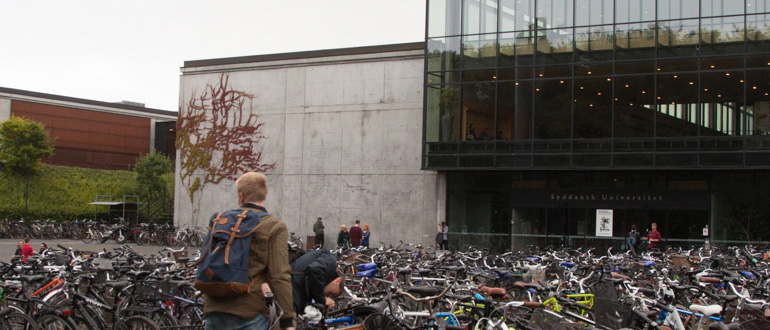
Udskudt på ubestemt tid. An Environmental Ethos of Things: Buber, Heidegger, and Zhuangzi
Research-seminar with Eric S. Nelson, professor at Hong Kong University of Science and Technology. See https://huma.hkust.edu.hk/people/eric-s-nelson
Nelson is one of the leading thinkers within contemporary environmental philosophy. He will present his ideas about environmental Ehos of things, followed up by questions and life-friendly discussions. All are welcome to participate.
Content: Hermeneutical and phenomenological philosophers, such as Dilthey and Husserl, analyzed the thing as a lived experiential reality that is more and other than its causal atomistic constitution as explained in the natural sciences. The early philosophies of the thing in Martin Buber and Martin Heidegger began from this point of departure in which the thing was interpreted as a holistic-relational formation from the perspective of a primarily anthropocentric subject. In confrontation with the prevailing paradigm and in dialogue with early Daoist sources, each thinker transitioned toward prioritizing the thing. Buber's I and Thou (1923) interpreted the thing and the creature, using examples (the stone, the tree, the cat) that resonate with passages from the Zhuangzi, as co-participants and silent interlocutors in their encounter and experience. The later Heidegger, after 1943, explicated the thing as formative of place, as the environing region, in which the encounter itself transpires. Critics have argued that such "thing-mysticism," also expressed in German language poets such as Hofmannsthal and Rilke, is at best merely an aesthetic sense of the thing and the environment. Even so, a significant element of current climate and environmental crises are the failures of human imagination and perception concerning things and environments. This paper will accordingly reconsider the overlapping yet distinctive approaches of Buber and Heidegger toward the thing in the context of their ecological implications, tracing how an altered aesthetics and, more broadly, ethos of things can offer indications for extending and possibly reorienting environmental attitudes and practices.